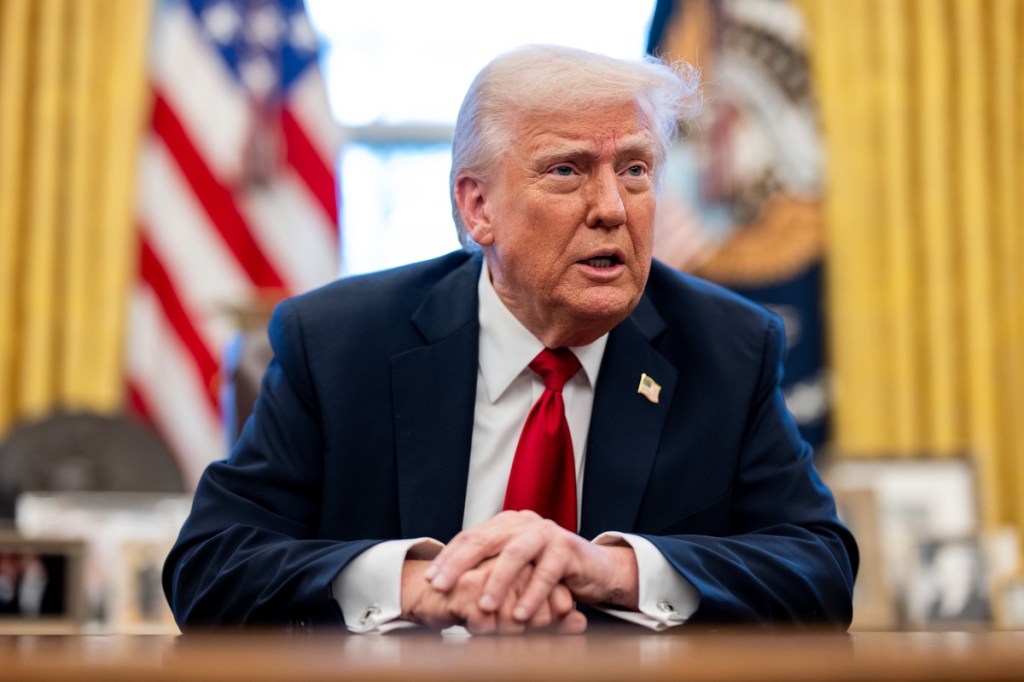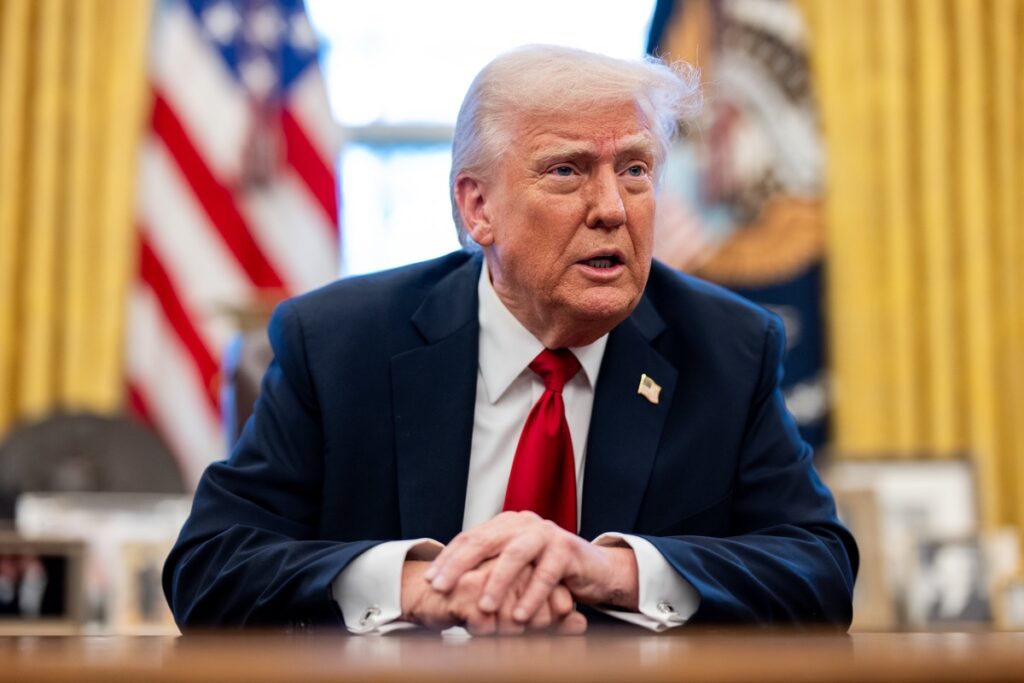
Economists don’t know what to expect on April 2, the day President Trump has promised a wide range of tariffs against America’s trading partners.
Which countries? Which products? What rate? And how will countries respond? The lack of answers to those questions has led to widespread uncertainty. Forecasters can’t say how fast – or slow – the economy will grow. CFOs aren’t sure whether to move forward with hiring and investment plans.
Supporters of tariffs hope for a new fair system with an even playing field for global trade. Others just hope for clarity.
But it’s also very possible that April 2 – which Trump has dubbed “Liberation Day” – only marks a continuation of start-and-stop policy, with a series of exemptions, delays, and more open-ended threats.
For the travel industry, the impact is indirect. Tariffs apply to imported products — think cars, washing machines, and even champagne. They don’t get added to airfares, hotel rooms, or tours.
But the knock-on effects could be significant. Tariffs will likely lead to higher prices and a stronger U.S. dollar, making America a more expensive destination for visitors. And then there are the vibes. Will tourists still be eager to visit a U.S. that is engaged in a trade war with their home country?
“Trump policies might cut U.S. travel growth by half,” said Seth Borko, head of Skift Research, referring to a range of actions like a possible tariff war and increased uncertainty about how border agents will interpret and enforce border rules.
The Impact on Hotels
Hoteliers face two potential areas of added expense: costs for new construction, and costs for furniture, fixtures, and equipment.
Tariffs on construction materials such as steel may eventually push prices up, as Skift Research noted in the report, U.S. Hotel Supply Outlook: How Slowing Growth Is Shaping the 2025 Market.
“Although we remain optimistic for higher supply growth in 2025, we must also be wary of potential changes in tariff policies under the Trump administration, which could introduce new cost pressures, particularly on key construction materials and labor,” wrote Pranavi Agarwal, senior research analyst. “If tariffs lead to rising costs, developers may once again face financial hurdles that could slow project timelines.”
In the short-term, prices might not jump if producers absorb some of the hit. But construction material costs are already up 40% since February 2020, according to the Associated Builders and Contractors.
Hoteliers may also face rising costs overall for furniture, fixtures, and equipment, such as if there are sustained increases in tariffs on goods imported from China.
That said, a majority of goods hoteliers use to outfit and decorate hotels come from countries other than China, said Sarah Churchill, director of business development at Benjamin West, an outfitter to hotel operators. So the full hotel sector impact may depend in part on whether Trump adds relevant tariffs to producers in countries like Vietnam and Europe.
Among extended-stay hotel operators, there is cautious optimism. If Trump persists with a tariff war, reshoring manufacturing to the U.S. could benefit the extended-stay segment due to increased demand for temporary housing for workers near new projects.
“Future deregulation, if enacted, should bring about additional project demand,” said Greg Juceam, ESA’s President and CEO, in an interview last month.
The Impact on Airlines
Airlines are continuing to see growth, but it’s slowing down. American Airlines, Delta Air Lines and Southwest Airlines lowered their first quarter outlooks, citing economic uncertainty as one of the reasons. Delta CEO Ed Bastian noted on CNBC that the carrier had seen companies pull back on spending and consumer confidence decline.
Tariffs have also started to impact U.S.-Canada travel. United Airlines CEO Scott Kirby said at an investor conference in March that the carrier had seen a “big drop” in Canadian traffic to the U.S.
Boeing chief financial officer Brian West said the company isn’t expecting to see a “material near-term impact” from tariffs. The U.S. plane maker has a massive backlog in orders, which West said would shield the company in the short-term. However, he added that there was some concern that tariffs could have an impact on the availability of parts.
Airbus could prioritize deliveries to non-U.S. customers as a result of the tariffs, the plane maker’s CEO said in February, according to Reuters.
“We have a large demand from the rest of the world, so [if] we face very significant difficulties to deliver to the U.S., we can also adapt by bringing forward deliveries to other customers which are very eager to get planes,” Airbus CEO Guillaume Faury said.
Speaking to Skift last week, Ryanair CEO Michael O’Leary, highlighted the level of uncertainty: “There’s lots of unintended consequences built in around what Trump is doing. We honestly don’t know if it will be net-positive or net-negative — we’ll just have to wait and see.”
The Dublin-based company is one of Boeing’s largest airline customers, with hundreds of new planes on order.
Strong Dollar
Skift Research notes that tariffs should lead to a stronger U.S. dollar if they lead to fewer imports. A stronger U.S. dollar would likely deter some foreign travelers.
Generally, around 10% of the growth in inbound tourism to the U.S. can be explained by dollar strength/weakness in any given year.
Vibe Shift
Tariffs are one thing, but heated rhetoric around trade wars can lead to heightened patriotism and reduce the willingness to travel to the U.S.. Canadian visits, for example, have already begun to decline, early data suggests.
Canadian Prime Minister Justin Trudeau has also previously said this may mean Canadians change vacation plans “to stay here in Canada and explore the many national and provincial parks, historical sites, and tourist destinations our great country has to offer”.
Porter Airlines president Kevin Jackson told Skift that the Canadian carrier decided to pause marketing for U.S. destinations. The airline is the third largest in Canada.
“Canadian consumers have made it clear to us that they don’t believe that we should be promoting travel to the United States,” Jackson said.
Accor CEO Sébastien Bazin said Tuesday that there was “bad buzz” around travel to the U.S. and that summer bookings from Europeans were down 25%.
Virgin Atlantic’s CFO recently warned of slowing U.S. demand.
Recession Watch and the ‘Wealth Effect’
Measures of consumer confidence have plummeted but the impact on travel spending is mixed. A survey by the Conference Board showed that despite a “gloomy” outlook, households planned to increase their travel spending.
But that’s considered “soft data” – people saying what they expect to do. Bank of America shared “hard data” this week – what their customers are actually doing – and it found that spending on lodging services and tourism-related services was about 2.5% below last year’s levels, while spending on air travel was down around 6%.
According to Skift Research, the top 9% of households account for 30% of U.S. travel spending. The top 15% account for 40%.
A so-called “wealth effect” can account for some of that – a soaring stock market and rising home values has increased net worth for many households and encourages more spending, including on travel.
The prospect of rising tariffs has been a drag on stocks, however, with the S&P 500 at points down 10% from highs. The wealth effect is tough to measure, but continued declines in asset values could lead to a pullback in spending from luxury travelers.
Premium IPTV Experience with line4k
Experience the ultimate entertainment with our premium IPTV service. Watch your favorite channels, movies, and sports events in stunning 4K quality. Enjoy seamless streaming with zero buffering and access to over 10,000+ channels worldwide.

















